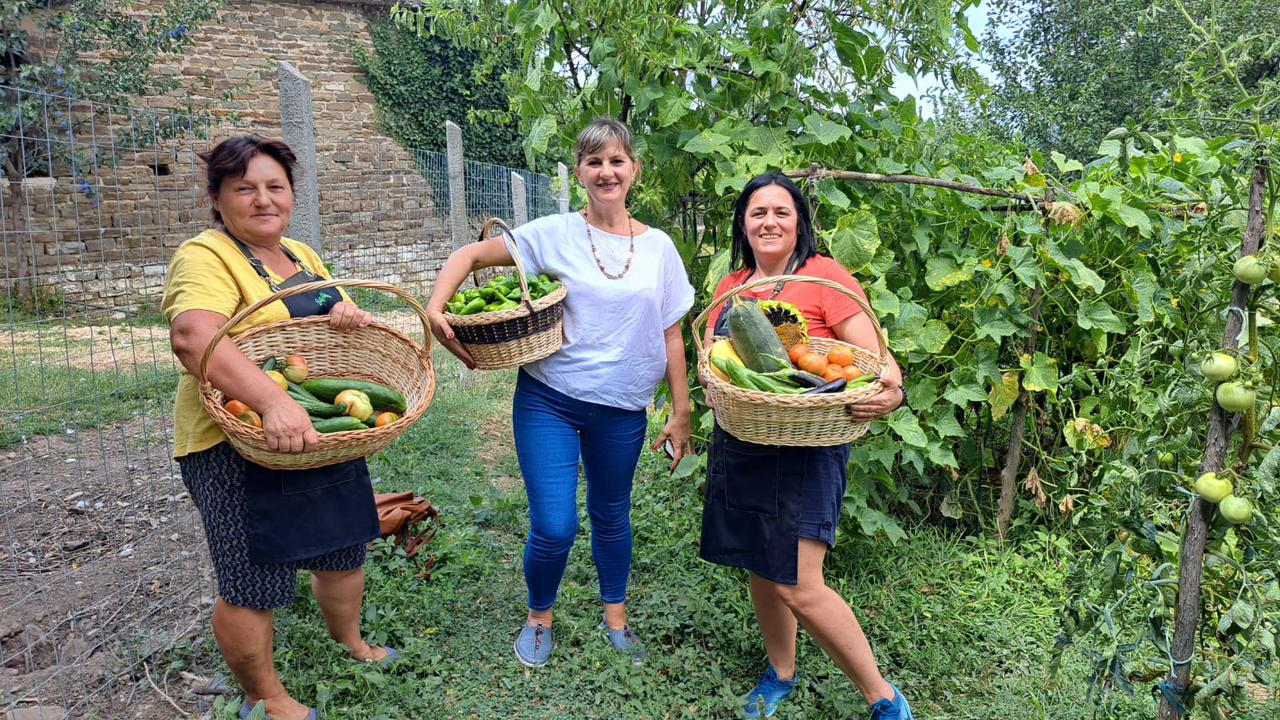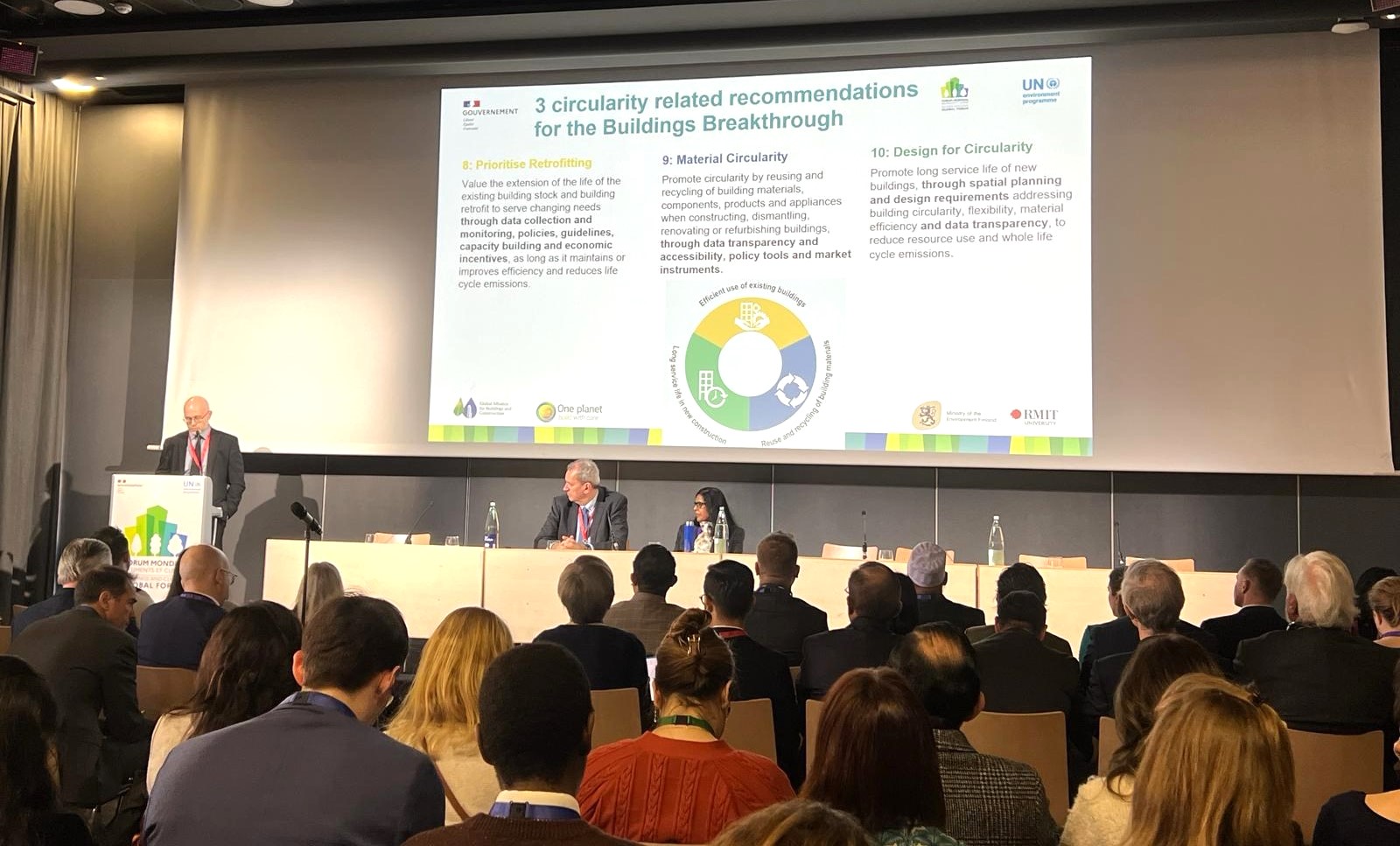Key messages from final webinar #8 Sustainable Living 1.5: Empowering people to live better and lighter

1. “Sustainable lifestyles is about quality of life over quantity of life – it’s about the moments of joy, sharing in communities, meaningful engagement and being responsible for others.”
First, Lewis Akenji (Executive Director of SEED) discussed the myths and realities on what it takes to live in a 1.5 degree lifestyle and shared some lessons learnt from the COVID-19 pandemic. By the end of the year we’ll reach a total reduction of global carbon emissions of around 7% - the greatest reduction since WW2 - yet, this success was achieved at a very high cost: lockdowns, restrictions and socio-economic losses all around the world. According to Akenji, “this is an early warning sign that if we do not plan and carefully transition to sustainable lifestyles, we are going to be faced with even worse chaos than we have now!” Every industrialized country needs to reduce its lifestyle carbon footprint by more than 70% before 2030 and in most cases by about 90% before 2050. So how do we deal with this? “Is it the individual AND the system that needs to change! Moreover, raising awareness and having ecolabels is not enough. Instead, we need the right infrastructure and policies that support the transition towards sustainable lifestyles.” Another myth is that carbon emission reductions are just a developed country issue. It is both industrialized and industrializing countries that are part of the problem and the solution. Finally, three key things Akenji pointed out: First, we don’t have a global framework that targets consumption and lifestyles – something urgently needed! Secondly, we have to rethink the role of micro, small and medium-sized enterprise that very often underestimated in their power to drive sustainable living. Lastly, we need to rethink the way our cities are designed so that they become more joyful places that enable us to live more sustainably.
2. “There is nothing wrong with healthier food, cleaner beaches, fresher air, lush forests and to have more meaningful interactions with friends”
Next, Louise Mabulo (Founder of the Cacao Project) shared her inspirational story of how she has become a food systems entrepreneur and founder of a social venture aimed at equipping farmers for sustainable success. “Right now, I am 22 years old and I’ve been in the culinary industry for 10 years and in that timeframe, I got exposed to the world’s food systems. I saw how there was a very big problem with our food industry…this massive disparity between consumers and producers -where people didn’t understand where their food was coming from and how it got to their plates. As a response, Louise started creating farm-to-table food that was locally sourced and grew her own ingredients. After her community in the Philippines was hit by Typhoon Nock Ten, destroying 80 percent of agricultural land and putting the region’s food system in jeopardy, Louise realized how vulnerable people’s livelihoods were to the effects of climate change and thus established the agricultural venture called The Cacao Project. “We trained and equipped farmers for sustainable success and we re-evaluated this model of food systems in our community and worked to establish better resiliency to cultivate economic forests that would benefit both the people in my town and the planet.” When asking Louise what young women like her can do to make a difference, she offered some advice: #1 Find your niche! Secondly, find how you can integrate environmental stewardship and sustainable solutions into the work that you are passionate about. That’s where you can make meaningful and tangible change! And lastly, start locally and be a steward to our planet that takes responsibility!”
3. “What makes us happy is thinking in terms of community and not only about ourselves, allowing us to make decisions to live sustainably “
The third panelist, Sebastián Muñoz (Experiencies Design and UX, Rutopia) introduced his enterprise Rutopia, a social tech start-up focused on ecotourism and the sustainable development of Mexico. When traveling through Mexico, Sebastián noticed that many rural and indigenous people were forced to cut down forests and consequently degrading their ecosystems in order to make a living. “About 90% of all the indigenous population live in protected areas that are being degraded right now! The mission of the digital travel platform Rutopia is to connect travelers from all around the world with local hosts and communities in Mexico so that people can discover and explore the countries amazing natural landscape while also preventing further deforestation. “Now local people start seeing the value of their forests and a change in perception can mean a change in a lot of ecosystems being saved!” Few industries have fallen as far and as fast as the travel industry because of the global pandemic, however, Sebastián also noticed some positive changes: People have started to travel more locally and more often choose nature as a travel destination. Therefore, at Rutopia “we are aligning what we see travelers want with what we know that the rural villages can offer with what we know can create a social impact and help local ecosystem!”
4. “Isn’t it more fun to know exactly what you want rather than thoughtlessly pick up many things that you might not even need”
Lastly, Hugo Schally (Head of the Multilateral Environmental Cooperation Unit at the European Commission) explained how policy can best serve to both overcome the barriers to achieving sustainability and to really upscale the work on sustainable consumption and production in the current COVID-19 era. “From a public-policy perspective we need to look at how we actually make sure that societies and economies as a whole make this transition [towards more sustainable living],” Schally asserts, further pointing out that “in the EU this has been a long-standing ambition.” The 2011 Resource Efficiency Roadmap as well as the first and second EU Circular Economy Action Plan (in 2015 and 2020 respectively) all are part of the new sustainable growth strategy that is ultimately encompassed by the European Green Deal. This action plan not only aims to transform the EU’s economy into a sustainable one but also intends to empower the individual consumer to make more sustainable choices. “Just labelling and providing information is not going to be enough. I think you need to go the next step by actually making the whole regulatory and fiscal system supportive to that change. Our ambition is to create a strong and coherent framework that will actually aim at making sustainable products, services and businesses models the norm and thereby help transform consumption patterns!” In this context, the EU’s new ‘consumer agenda’ is supposed to give more power to the consumer so that people have more rights with regard to products being repaired and replaced. In other words, “to make it mandatory to offer the sustainable choice!” Here, the focus of the EU will be to work on specific sectors, including plastics, the textiles sector, construction and buildings, food and drinks and the mobility sector. Lastly, the finance sector needs to be brought in by establishing clear criteria on what is a sustainable and green investment!
To find out more check out the following links:
- Sustainable Lifestyles: Options and Opportunities: This publication provides a sample of opportunities that can be tailored and applied at the city level to introduce and promote more sustainable lifestyles
- 1.5-Degree Lifestyles: Targets and options for reducing lifestyle carbon footprints. Global targets for lifestyle carbon footprints, current consumption patterns, footprint impacts, and potential options for reduction.
- Anatomy of Action: An evidence-based social media tool kit that translates science into what people can do in their daily lives.
- Fostering and Communicating Sustainable Lifestyles: Principles and Emerging Practices: This UN Environment report sets out a four-step strategy roadmap for fostering and communicating sustainable lifestyles, illustrated by 16 initiatives and campaigns from around the world.

